By GANIYU OBAARO
As President Bola Ahmed Tinubu settles down to proper governance, expectations are high that there will be a new beginning in tax administration in Nigeria.
This is, especially more reassuring as Tinubu, during his maiden address to the nation on Tuesday, May 29, 2023, said he would look into the lingering multiple taxation challenge in the country.
Recall that Tinubu, who took over from his immediate predecessor, Muhammadu Buhari, at the Eagles Square, Abuja, assured Nigerians of his determination to tinker with a number of macro/micro-economic, security and petroleum industry issues weighing down the nation’s development for decades.
Nigerians, and, in fact, businesses, have been at the receiving end of poor and debilitating tax system in the country.
For example, from the colonial times to the current postcolonial era, various forms of tax had been enunciated and administered for revenue generation, enhancement of the nation’s Gross Domestic Product, GDP, among other uses.
There is no doubt, however that, as a compulsory payment levied on corporate organizations by the government, control/regulate inflation/ consumption, the institution has definitely come of age through helping to build the economy.
Midwife by the Federal Inland Revenue Service, FRSC, which collects taxes, such as Excise, Duty, Company Tax, Import Duty, Value Added Tax, the 774 local government councils, in their desperate bid to augment and raise their revenue bars, wantonly imposed multiple levies on businesses operating in their domains. This situation often leads to clashes among their workers and the unwilling payers.
The action of these councils, in which the wealth of businesses, individuals is taxed multiple times, result in the potential crippling of business operations, loss of seamless capital inflow, collapse, sacking of workers and poverty, especially among the potentially vibrant working population. .
Worst hit among the various business layers are; Medium and Small Scale Enterprises, MSMEs and Small and Medium Enterprises, SMEs.
Operators in the small businesses often accused both the state and local governments of stifling their endeavor to grow, especially, as they are daily confronted with other institutional challenges, like electricity, poor road network, insecurity, petrol scarcity/ high cost and theft of company properties by thieves, both internal and external. They argue that such challenges have compelled many players to operate either from homes, virtually, or asked workers to close early or skip days not coming to work.
Yet, the sector claims it constitutes 48 per cent of businesses in the country and over 90 per cent of revenue generation accruable to the GDP annually.
In Lagos, for example, such businesses dot, Apapa, Mushin, Matori, Ikeja and Ilupeju. On a daily basis, massive human/vehicular traffic, mostly workers of these companies located in these industrial estates/concerns are recorded, where they daily eke out a living.
According to the Chief Executive Officer Centre for the Promotion of Private Enterprise, Muda Yusuf, while lamenting the stranglehold multiple taxation and other institutional issues have on small businesses in particular, said that, “Multiple taxation triggers challenges for corporate businesses across the country. He urged the government to address them frontally; counseling that for Nigerian startups to grow and become big global players, government must not shy away from removing all those colonial relics that are no longer in sync with modernity and best global practices,
He said that businesses should strive to take advantage of the inherent potentials provided by African Growth and Opportunity Act and African Continental Trade Area, including enhancing their training potential, acquiring modern Information Communication Technology, ICT, infrastructure, among other needs.
Worried by the plethora of problems facing the sector and other related ones, the Federal Government of Nigeria has since embarked on: “Ease of Doing Business,” economic framework designed to align the country with the global standards, encourage both local and foreign investors to invest in the economy.
How far tis would go, as analysts say, remain to be seen, years after it was inaugurated with funfair by the outgone government of Buhari.
Some state governments have also made efforts to streamline their tax systems.
For Example, Lagos State Government has said it would key into that economic philosophy of ‘ease of doing business’ as started by the Federal Government of Nigeria. This has been lent credence by the Governor of Lagos State, Mr. Bbajide Olusola Sanwo-Olu. Through his THEMES’ agenda, the governor told business operators at MSME workshop in Lagos, recently, that he would harmonize taxes in the commercial city.
Sanwo-olu, who spoke through the Commissioner for Trade, Industries and Cooperatives, Lola Akande, in Ikeja, Lagos, said businesses would be given adequate protection and support in his drive to make the state healthy for investors.
But, the Organised Private Sectors, OPS, including Manufactures Association of Nigeria, MAN, Nigerian Association of Chambers of Commerce, Mines and Agriculture, NACCIMA, State Chambers of Commerce and Industries, are least optimistic about government’s promise. They regretted that government does not often keep their promises.
Chairman, MSME, Lagos Chapter, Mrs. Getrude Akhimien, lamented that there was high mortality among her members; and urged the government to assist them. Akhimien, who spoke at a workshop organized by her group in Lagos, boated that her members could compete effectively with the world going by the quality products they produce for sale/ consumption.
According to the Director General, Manufacturers Association of Nigeria, MAN, Olusegun Ajayi Akadir, Nigeria’s businesses, including small and large scale players, face imminent extinct, going by poor policy framework and implementation.
He said that poor infrastructure, foreign exchange crisis and now, fuel subsidy removal, would worsen the already bad economy.
For him, unemployment, security challenges, health crisis, poverty, would face workers and Nigerians, going by the nation’s near economic collapse. He wants the government to address these issues and others, from getting out of hands soon.
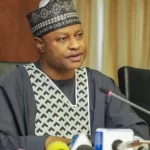
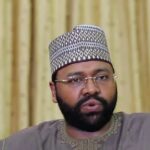
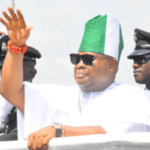

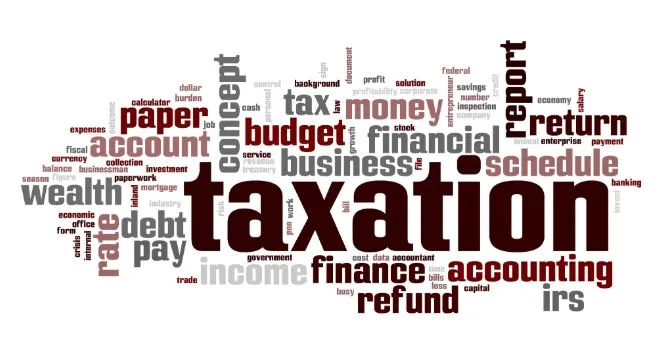
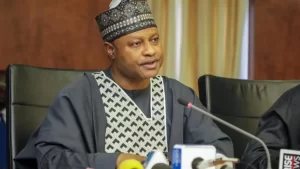
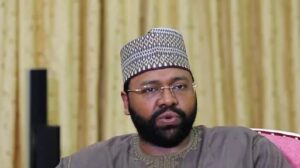
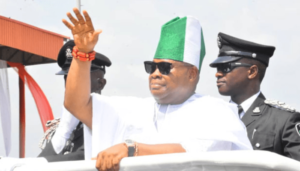
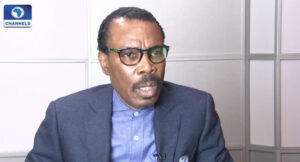
More Stories
FG has supported Naira with $8 billion, says Rewane
NNPC vs Dangote: Mele Kyari says security action taken against petrol reviewer
NBS latest data shows food inflation crashed by nearly 40%